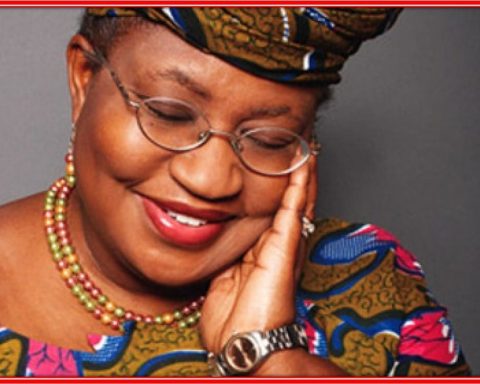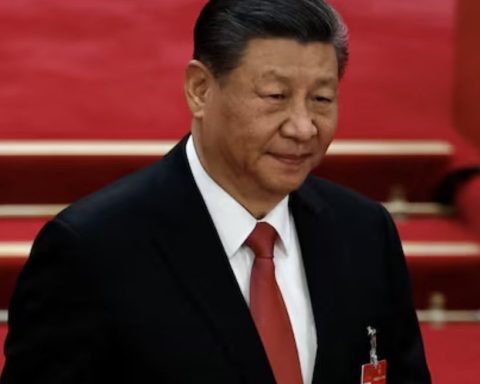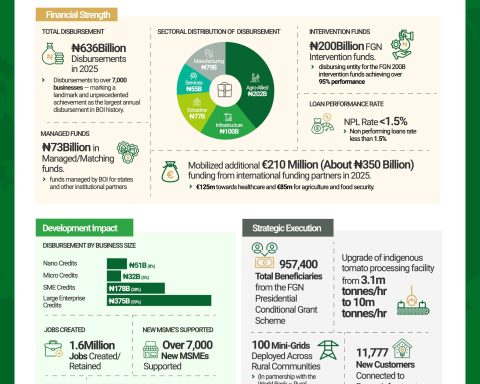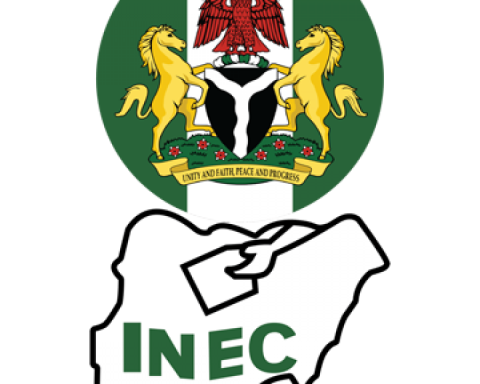Former Statistician-General of the National Bureau of Statistics (NBS), Dr. Yemi Kale, has stepped into the controversy sparked by World Trade Organization (WTO) Director-General Ngozi Okonjo-Iweala’s remarks after her recent visit to President Tinubu.
Speaking in Abuja, Okonjo-Iweala had said the president and his team had “worked hard to stabilise the economy,” adding that “you cannot really improve an economy unless it is stable.”
Join our WhatsApp ChannelHer words quickly triggered outrage, with many Nigerians accusing her of downplaying the hardship caused by persistent inflation and rising costs of living. The latest NBS figures show that headline inflation stood at 21.88 percent in July 2025, slightly down from 22.22 percent in June. However, food inflation rose to 22.74 percent from 21.97 percent, underscoring the pressure on households struggling to afford basic staples.
Activist Aisha Yesufu described Okonjo-Iweala’s statement as a “mockery of the masses,” while opposition voices such as the African Democratic Congress (ADC) accused the government of cherry-picking her words and ignoring her simultaneous call for job creation and stronger social safety nets.
In a detailed response aimed at easing tensions, Kale explained that Okonjo-Iweala’s choice of words should be understood in technical economic terms. According to him, when economists describe an economy as “stable,” it does not necessarily mean that citizens are free from hardship. Instead, it suggests that key macroeconomic indicators such as inflation, exchange rates, and GDP growth have stopped swinging unpredictably, making it possible for businesses and investors to plan ahead with some degree of confidence. He likened stability to “stopping a boat from rocking wildly,” but stressed that Nigerians are still far from shore, as the pain of high prices and stagnant incomes remains very real.
Kale further clarified that stability often benefits investors and businesses first, while it can take months or even years before households feel relief through job creation, higher wages, or cheaper goods. In his words, stability is a “necessary but not sufficient condition” for economic improvement. His intervention reframes the debate by separating technical progress from lived reality, but it also underscores why Okonjo-Iweala’s comment touched a raw nerve among citizens who measure the economy by daily survival, not by abstract indicators.
READ ALSO: Feeding 10 Billion: The High Stakes Of Agricultural Biotechnology
Spain Deploys 500 More Troops As Wildfires Kill Three, Burn Vast Forests
Beyond the controversy, Okonjo-Iweala also launched the $50 million Women Exporters in the Digital Economy (WEIDE) Fund in Abuja, with Nigeria chosen as one of four pilot countries. Out of 67,000 applicants, 146 women entrepreneurs were selected for funding and technical support, with grants ranging from $5,000 to $30,000. She emphasized that while stability is important, initiatives like WEIDE show that building safety nets and empowering citizens remain critical to easing hardship.
The exchange highlights a widening gap between economic language at the top and the lived experience of ordinary Nigerians. While experts like Kale argue that stability is the first step toward reversing hardship, for millions of families still reeling under high food prices and transportation costs, the question remains: stability for whom, and when will it bring relief?
Amanze Chinonye is a Staff Correspondent at Prime Business Africa, a rising star in the literary world, weaving captivating stories that transport readers to the vibrant landscapes of Nigeria and the rest of Africa. With a unique voice that blends with the newspaper's tradition and style, Chinonye's writing is a masterful exploration of the human condition, delving into themes of identity, culture, and social justice. Through her words, Chinonye paints vivid portraits of everyday African life, from the bustling markets of Nigeria's Lagos to the quiet villages of South Africa's countryside . With a keen eye for detail and a deep understanding of the complexities of Nigerian society, Chinonye's writing is both a testament to the country's rich cultural heritage and a powerful call to action for a brighter future. As a writer, Chinonye is a true storyteller, using her dexterity to educate, inspire, and uplift readers around the world.











